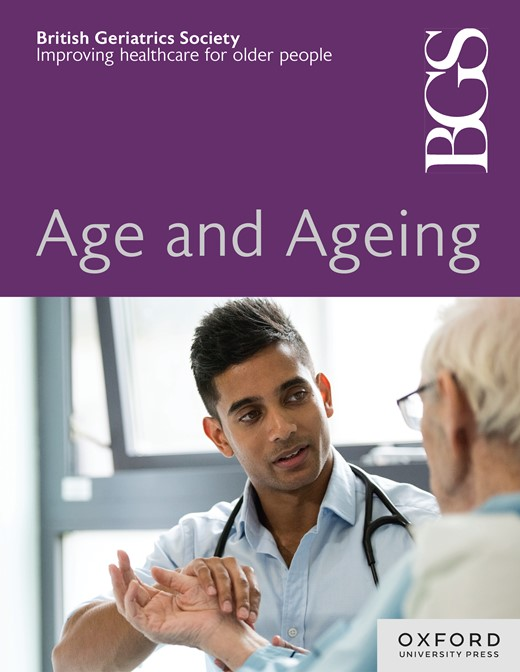The world falls guidelines: how is implementation progressing globally?
IF 7.1
2区 医学
Q1 GERIATRICS & GERONTOLOGY
引用次数: 0
Abstract
The World guidelines for falls prevention and management for older adults (WFG), from 2022, represent a global initiative to address the rising incidence of falls and related injury. WFG provides evidence-based recommendations across various settings, including community, hospital, and care home environments. A recent report highlighted a large variation in the implementation progress of the WFG across Europe. However, to date, a comprehensive global overview of the WFG implementation status has not been undertaken. To address this gap, we reached out to experts who took part in WFG to inquire about the implementation status of WFG in their countries. The responses from experts from 18 countries (one from Africa, six from Asia, one from Europe, three from North America, one from Oceania and six from South America) revealed that efforts to implement the WFG are underway in many of them, with differing degrees of progress varying from advanced integration into guidelines/policies to no/minimal actions. While the global implementation status of WFG is encouraging, significant barriers remain, including limited resources, competing health priorities, and cultural differences in care models. Adapting the WFG to diverse healthcare systems and integrating falls prevention into national policies and health priorities is essential to enable effective implementation. Furthermore, strengthening global collaboration, sharing best practices, prioritisation of the most effective and feasible falls prevention components in low resource settings, and advocating for falls prevention as a public health priority will help accelerate progress across the world for the benefit of older patients at risk of falling.《世界瀑布指南》:全球实施进展如何?
从2022年起实施的《世界老年人跌倒预防和管理指南》是一项全球倡议,旨在解决不断上升的跌倒和相关伤害发生率。WFG在各种环境中提供基于证据的建议,包括社区、医院和养老院环境。最近的一份报告强调了欧洲各国在《世界粮食安全框架》的实施进展方面存在很大差异。然而,迄今为止,尚未对《世界粮食联盟》的执行情况进行全面的全球概览。为了解决这一差距,我们联系了参加WFG的专家,询问WFG在他们国家的实施情况。来自18个国家(1个非洲国家、6个亚洲国家、1个欧洲国家、3个北美国家、1个大洋洲国家和6个南美国家)的专家的答复显示,其中许多国家正在努力实施《世界粮食安全目标》,取得了不同程度的进展,从将《世界粮食安全目标》纳入指导方针/政策到不采取行动或采取最低限度的行动。虽然世界妇女联盟的全球实施状况令人鼓舞,但仍然存在重大障碍,包括资源有限、卫生优先事项相互竞争以及护理模式的文化差异。使《世界健康联盟》适应不同的卫生保健系统,并将预防跌倒纳入国家政策和卫生优先事项,对于有效实施至关重要。此外,加强全球协作、分享最佳做法、在资源匮乏环境中优先考虑最有效和可行的预防跌倒内容,并倡导将预防跌倒作为公共卫生优先事项,将有助于加快世界各地的进展,造福有跌倒风险的老年患者。
本文章由计算机程序翻译,如有差异,请以英文原文为准。
求助全文
约1分钟内获得全文
求助全文
来源期刊

Age and ageing
医学-老年医学
CiteScore
9.20
自引率
6.00%
发文量
796
审稿时长
4-8 weeks
期刊介绍:
Age and Ageing is an international journal publishing refereed original articles and commissioned reviews on geriatric medicine and gerontology. Its range includes research on ageing and clinical, epidemiological, and psychological aspects of later life.
 求助内容:
求助内容: 应助结果提醒方式:
应助结果提醒方式:


